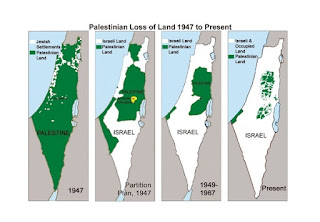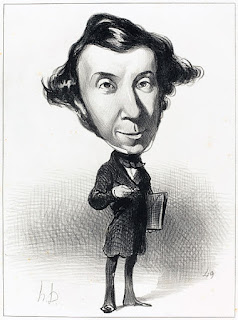 |
| Plato’s tale of shadows being misinterpreted in the cave can be taken as a warning about the dangers of propaganda and misinformation |
There’s a thinking error, sometimes called the Dunning-Kruger effect that warns us that cognitive biases can lead people to overvalue their own knowledge and understanding, amplified by tilted campaign narratives that confound voters. Sometimes voters fail to recognize their patchy ability to referee the truth of what they see and hear from the presidential campaigns and various other sources, including both social media and mainstream media. The effect skews public debate, as the electorate cloisters around hardened policy affecting America’s future. It is a tendency that has prompted many thinkers, from among the ancient Athenians to some of America’s founders, to be wary of democracy.
So, perhaps today more than ever, the manner of political discourse profoundly matters. Disinformation from dubious sources and the razor-edged negative branding of the other candidate’s political positions abound, leading to distrust, rifts, confusion, and polarised partisanship within society. The bursts of incivility and brickbats are infectious, sapping many among the electorate. Witness today’s presidential campaign in the United States.
Even before the conventions of this summer, the Democratic and Republican presidential candidates are a lock; yet, any expectations of orderliness are an illusion. President Joe Biden and former president Donald Trump, with candid campaign devotees deployed alongside, are immersed in spirited political tussles. The limited-government mindset of Enlightenment philosopher John Locke might well stoke the hurrahs of libertarians, but not of the mainstream political parties thriving on the nectar of activism and adversarial politics.
We’re left asking, then, what facts can the electorate trust as they make political choices? With what degree of certainty should the public approach the information they’re served by the campaigns and legions of doctrinaire pundits talking at cross purposes? And is it possible to cut through the diffusion of doctrine and immoderate conviction?
Facts are indispensable to describing what’s happening inside the political arena, as well as to arbitrate policy changes. Despite the sometimes-uncertain provenance and pertinence of facts, they serve as tinder to fuel policy choices. The cautious expectation is that verifiable facts can translate to the meeting of minds. The web of relationships that gives rise to ideas creates an understanding of the tapestry that the public stitches together from the many fragments. The idealised objective is a Rousseau-like social contract, where the public and elected representatives intend to collaborate in pursuit of the common good — a squishy concept, at best.
Today, anyway, the reality is very different: discourse in the public square often gets trampled, as camps stake out ownership of the politically littered battleground. The combustibility of political back-and-forth makes the exchanges harder, as prickly disputants amplify their differences rather than constructively bridge divides. In the process, facts get shaded by politically motivated groups metaphorically wielding high-decibel bullhorns, reflecting one set or another of political, societal, and cultural norms. Hyperpartisanship displaces bipartisanship.
Consider the case of refugees and migrants arriving cross-border in the United States. The political atmosphere has been heavy with opposing points of view. One camp, described by some as nativist, contends that porous borders threaten the fabric of the nation. They fear marginalisation, believing “fortress America” is the solution. Another, progressive camp contends that the migrants add to the nation’s economy, enrich our already-dynamic multiculturalism, and on humanitarian grounds merit assistance. Yet, the cantankerous rhetorical parrying between the camps continues to enlarge, not narrow, the political gap.
Disputes over book bans, racial discrimination, reproductive rights, tax policy, inequality, role of religion, public demonstrations, gun safety, rules of democracy, and other normative and transactional wedge issues are equally fraught among intransigent politicians of diametrically contrasting views and immune to persuasion. Such flashpoints are made worse by intra-party, not just cross-party, hubs at boisterous variance with one another — leaving one wondering how best to arrive at a collective of settled norms.
Instead of being the anchors of social discourse, real or disputed facts may be used to propagate discord or to disadvantage the “other.” Facts fuel jaundiced competition over political power and control: and as historian and politician Lord Acton said, such “power tends to corrupt and absolute power corrupts absolutely.” Many people complain that this “other” is rooted in systemic bias and ranges across race, ethnicity, gender, national origin, language, religion, education, familial pedigree, and socioeconomics. The view is that marginalisation and disenfranchisement result from the polemical fray, which may have been the underlying aim all along.
Unfortunately, while the world democratises access to information through the ubiquity of technology, individuals with manipulative purposes may take advantage of those consumers of information who are disinclined or unprepared to thoughtfully question the messaging. That is, what do political narratives really say, who’s formulating the narratives, what are their benign or malign purposes, and who’s entrusted with curating and vetting? Both leftwing and rightwing populism roams freely. It recalls Thomas Paine’s advice in The Rights of Man that “moderation in temper is always a virtue; but moderation in principle is always a vice.” Shrewd advice too often left unheeded in the presidential campaign, and in the churn of events has itself become the tinder of the dissent mentioned above.
Today, dubious facts are scattered across the communications landscape, steering beliefs, driving confirmation bias, stoking messianic zeal, stirring identity warfare, and fueling ill-informed voting. As Thomas Jefferson observed, the resulting uncertainty short-circuits the capacity of ordinary people to subscribe to the notion “That government is the strongest of which every [citizen] feels himself a part.” A notion foundational to democracy, one might say. Accordingly, the public has to grapple with discerning which politicians are honest brokers, or which might beguile. Nor can the public readily know the workings of social media’s opaque algorithms, which compete for the inside track on the content of candidates’ messaging. Communication skirmishes are underway for political leverage between the Biden and Trump campaigns.
Jettisoning political stridency and hardened positions proves difficult, of course, especially among political evangelists at loggerheads. But it’s doable: The aim of sincere conciliation is to moderate the rancorous political discourse, while not fearing but rather accommodating the unbridled sharing of diverse ideas, which is foundational for democracy operating at its best.

